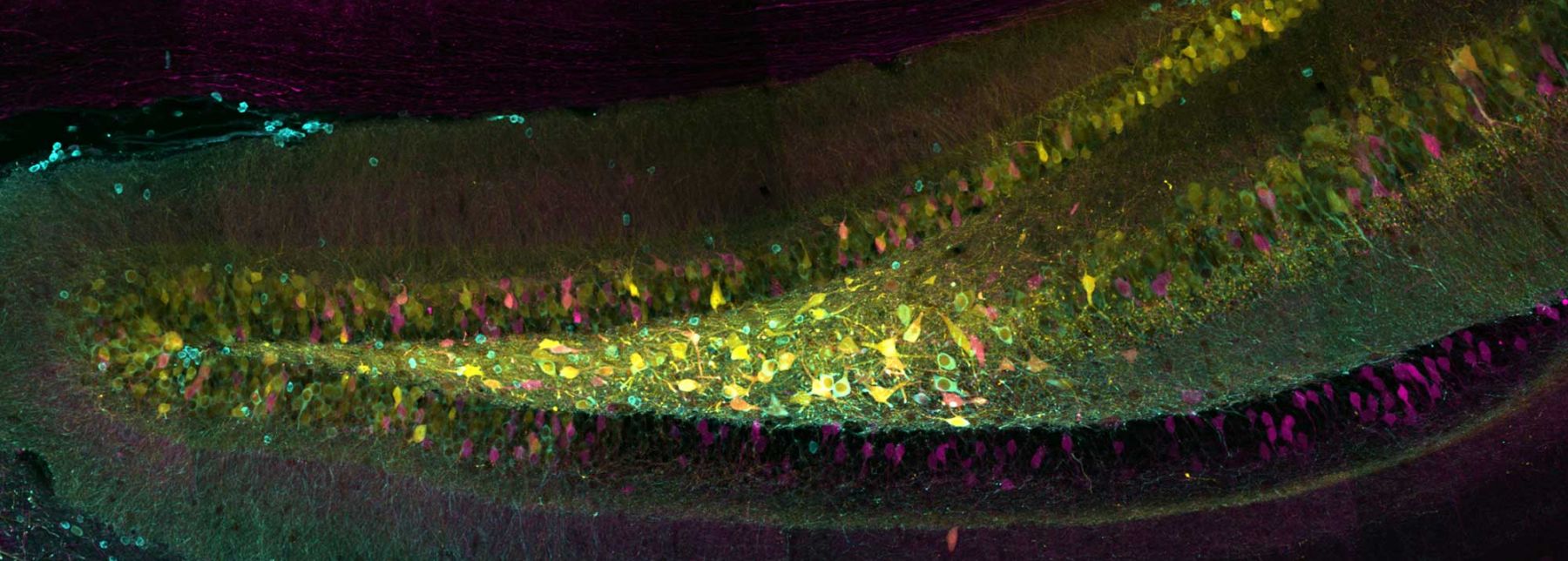The Molecular and Cellular Neuroscience research area is focused on using sophisticated tools from modern molecular and cellular biology to investigate how the nervous system functions at the microscopic scale.
This includes research into how neuronal molecules regulate the complex molecular and cellular environment to enable proper neuronal function, how cells of the nervous system communicate with one another, how neural structures develop from the embryo to the adult organism, and how molecular and cellular function is disrupted in disease states.
